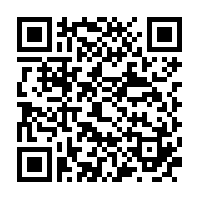Traits of a Mumin - Part 2
19 August 2017
بسم الله الرحمن الرحيم
لا يَكُونُ الْمُؤْمِنُ مُؤْمِناً حَتّى يَكُونَ عَاقِلاً بِالْعِلْم، نَاطِقاً بِالْحِكَمْ، وَرِعاً عَنِ الْحَرَامِ
'A Mumin is not truly a Mumin unless he is 1) Rational in learning, 2) wise in speech 3) A believer restrains himself from what God has forbidden...'
(Amirul Mumineen SA)
This article was written by Ra'sul Hududil Mayameen Janab Syedi Aziz Bhaisaheb Qutbuddin in 2017.
Traits of a Mumin Series Introduction
We recognize ourselves as “Mumineen” (singular “Mumin”); those who have “imaan” (faith) and those who believe. Particularly, those who believe Rasulullah SA and his successors when they speak of the Hereafter, the unknown (ghayb). We believe in the Oneness of Allah Ta’ala, that Rasulullah SA is His messenger, that Amirul Mumineen Ali SA is his wasiyy. We believe that an Imam in their progeny exists in every age, and the Imam’s Dai in every age during the Imam’s seclusion. As we assert every day in the tashahhud, we believe in “Jannat, fire, death, resurrection, judgment, Siraat-e-Mustaqeem and the imminence of the Day of Judgment” This is the essence of our belief. This is why each one of us is known as a “Mumin.”
But being worthy of this name entails much more. In his Risalat “Mafatih al-Yaqutat al-Hamraa’” Syedna Taher Saifuddin RA narrates a zikr in which Amirul Mumineen SA asked Rasulullah to describe to him the “traits of a Mumin.” Rasulullah said, “Where can one find a Mumin?! A Mumin is like a red ruby (yaqut-e ahmar)! Only found in the treasure vaults of kings!” Amirul Mumineen then lists the traits of a Mumin. As a Mumin, each of these traits is worth contemplating and reflecting on.
Part 1 of the “Traits of a Mumin” Sijill Article series was published earlier, and discussed the two traits: 1) rational in learning and 2) wise in speech.
The third trait Amirul Mumineen SA identifies is the following,
لا يَكُونُ الْمُؤْمِنُ مُؤْمِناً حَتّى يَكُونَ ... وَرِعاً عَنِ الْحَرَامِ،
'A believer restrains himself from what God has forbidden.'
A Mumin refrains himself from what is haraam – that which God has forbidden. Since a Mumin is “rational in learning” (see part 1), he also recognizes that what Allah Ta’ala has forbidden, He has done so for a reason. The reasoning is sometimes immediately made clear – for example, Rasullulah SA prescribed that alcohol and smoking are haraam. The former’s effects on the mind, body, and society are infamous, the latter’s effects are also well known. It is interesting to note how recent the medical research is with regards to the risk of cancer and smoking – but nevertheless, Rasullulah SA forbade it 1400 years ago. Sometimes the reasoning behind Sahib-uz-zaman’s forbidding a certain act, thing, etc. is not immediately clear, and requires an active effort to understand the reasoning through ascending the levels of knowledge.
Rasulullah SA and the messengers before him are the “healers of the soul” (atibba’un nufoos – lit. doctor for the soul). Through revelation they prescribed a Shari’at that encompasses what Allah Ta’ala has forbidden and that which he has allowed. This prescription is for the health and wellbeing of our bodies and our souls. These prescriptions are for our benefit.
Imam AS has said, “Allah Ta’ala has permitted that which is halaal and has enabled us towards it and forbidden that which is haraam and granted sufficiency without it” (innallah ahalla halaalan wa a’aana ‘alayhi wa harrama haraaman wa aghna anhu). Shari’at has forbidden that which is harmful and always provided a beneficial substitute. For example, adultery is haraam but lawful marriage is halaal. Usury (riba) is forbidden, but financial buy-sell agreements are halaal (click here to read about the ‘Ina contract).
But how do we know what Allah Ta’ala has forbidden? What is haraam? There are certain basic concepts that are explicitly and categorically forbidden in the Quran Majeed such as alcohol, usury, incest, adultery, blood and pork. But there are many topics which require explanation.
A fundamental aspect of our faith is that A’immat Tahereen and Hudaat Kiraam are the only authorities to interpret and explain the guidelines outlined by the Qur’an. Rasullulah SA and his successors A’immat Tahereen have explained to us in detail what is halaal and haraam. We do not believe that other individuals can, or should, deduct halaal and haram themselves by making their own analysis and comparisons (i.e. qiyas). Qiyas (or deduction by comparison) can be problematic in many instances. For example, the meat of goats, sheep, camels, cattle is halaal and all these animals are characterized by their split hooves. But if that was the only criteria then by comparison pork would also be halaal as pigs also have split hooves. Contradictorily, horses are halaal even though they do not have split hooves. Syedna al-Qadi al-Nu’man RA has presented many other strong arguments in his kitaabs regarding the necessity of an Imam in every age who has the authority that Rasulullah SA held to explain the prescriptions of Shari’at and define what is halaal and haraam.
In ever changing times, our Awliya’ Kiraam continue to guide us. They hold the authority from Allah Ta’ala to clarify what is haraam and what is halaal. During the Imam’s seclusion, Du’aat Mutlaqeen guide Mumineen and enable them to follow the prescriptions of halaal and haraam in Shari’at.
May Allah Ta’ala grant us tawfeeq and strength to refrain from what Allah Ta’ala has forbidden by following the guidance and example of His Awliyaa’ Kiraam. May He grant us the resolve to learn and understand the reasoning and meaning for what is haraam and halaal.
Insha’allah we will discuss the traits of a Mumin expressed by Amirul Mumineen in beautifully rhyming couplets in future Sijill articles.


